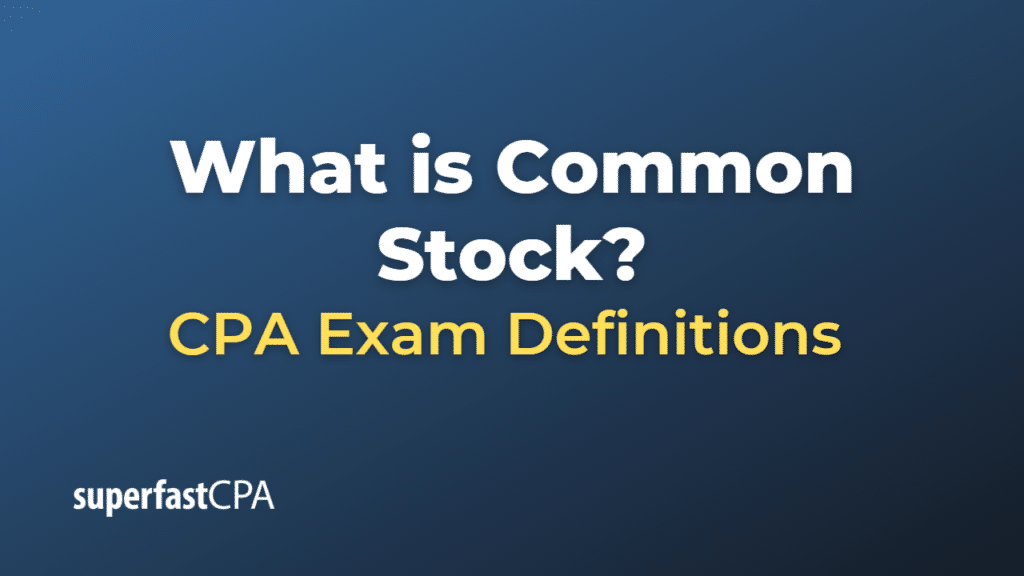Common Stock
Common stock is a type of equity security that represents ownership in a corporation. It is the most common form of stock issued by companies. Shareholders who own common stock typically have voting rights at shareholder meetings, usually one vote per share owned, and may receive dividends declared by the company’s board of directors. Common stockholders are considered partial owners of the company, and their ownership stake is directly proportional to the number of shares they hold.
In the event of a company’s liquidation, common stockholders are the last to receive any remaining assets after all the company’s obligations have been paid, including bonds, preferred stock, and other debts. Due to this lower priority in the capital structure, common stock carries a higher risk compared to other securities such as bonds and preferred stock. However, common stock also offers the potential for higher returns through capital appreciation (increase in stock price) and dividends, if the company performs well.
Common stock can be bought and sold on stock exchanges or over-the-counter markets and is often held by individual investors, institutional investors, and company insiders. The market value of common stock fluctuates based on factors such as the company’s financial performance, overall market conditions, and investor sentiment.
Example of a Common Stock
Let’s consider a hypothetical example to illustrate the concept of common stock. Imagine that Company ABC is a publicly traded corporation that has issued common stock on a stock exchange. As an investor, you believe that Company ABC has strong growth potential and decide to purchase shares of its common stock.
You buy 100 shares of Company ABC common stock at a market price of $50 per share, for a total investment of $5,000. By purchasing these shares, you now own a small portion of Company ABC and have certain rights as a common shareholder, such as:
- Voting rights: You can participate in shareholder meetings and vote on important company matters, usually with one vote per share owned. This means you have 100 votes to cast on issues like electing board members, approving mergers and acquisitions, or making changes to the company’s bylaws.
- Dividends: If Company ABC declares dividends, you may receive a portion of the company’s profits distributed to shareholders. The dividend amount is usually determined by the company’s board of directors and may vary from quarter to quarter or year to year, depending on the company’s financial performance and dividend policy.
- Capital appreciation: If Company ABC performs well and its stock price increases, the market value of your investment in its common stock will also grow. For example, if the stock price rises to $60 per share, your 100 shares would be worth $6,000, representing a $1,000 gain on your initial investment.
However, it’s important to remember that common stock carries risks. If Company ABC encounters financial difficulties or performs poorly, its stock price may decline, resulting in a loss on your investment. Additionally, in the event of a company liquidation, common shareholders are the last to receive any remaining assets after all other claims have been settled, which could result in a total loss of your investment if the company’s assets are insufficient to cover its obligations.
In summary, common stock allows investors to participate in the ownership of a company, with the potential for capital appreciation and dividend income, but also comes with inherent risks due to its position in the capital structure.













